By #TEAMIAN
brats@thestar.com.my
Zofian Yoame, a young orang asli adult, never wanted to leave home.
Knowing his options were limited in the village, he sought to get income to support his 10 siblings by working closer to town.
Being one of the workers of Casabrina Vacation Villas, Pahang, he said that he would rather work near his village, Kampung Tual, than get a job in the city.
Most jobs in the city require an education which unfortunately, he does not have. He’s the eldest of 10 siblings, and feels he is responsible over them.
“I don’t want to be away from home ,” he said. “I have a strong bond with my family members.”
Despite the city having everything a modern society could ever need, the orang asli in Kampung Sungai Dalam think otherwise. They believe in a more simplistic lifestyle.
The government has given them opportunities to pursue education by opening schools for the orang asli children.
Yet after their primary school years, they choose to return to their village. They feel that they are more suited to the rural lifestyle that has been ingrained in them for generations.
Suraya, 19, who has spent her whole life in Kampung Sungai Dalam, said she isn’t sure if she will send her daughter to school.
“I’ve thought about it, but I would prefer if she stayed with me in the village,” she admitted.
Zofian prefers the quiet life as well. He finds the nearby towns — Bentong and Raub — too busy for him to live there, but thankfully Casabrina owner Felix Tee provides him food and accommodation near the resort. Zofian’s village is a five-hour drive away from Raub.
Tee said: “In truth, they help me more than I help them. They come to me not out of demand, but out of choice.”
One of Zofian’s co-workers, Atiaz Dapaj, 26, said their work involved planting vegetables, removing weeds and ensuring none of the plants were damaged.
“These skills I have are not in demand in the city,” said Atiaz. “They aren’t applicable to apply for jobs there.”
Atiaz also said the idea of going to school has never crossed his mind, and was afraid he would not be able to cope.
Orang asli children are taught life skills like extracting honey, climbing trees to pluck petai and catching fish with their bare hands.
For entertainment, the children play in the woods and enjoy the beauty of mother nature.
Their traditional wooden houses do not come equipped with electricity and plumbing, and according to the villagers, only a couple of houses have generators.
To keep warm at night, they use wood to start a bonfire.
Even though the government has made an effort to build brick houses for the orang asli, they still prefer their traditional homes while using the brick houses for storage.
“It’s not that we do not appreciate the government’s efforts. We just feel more comfortable in our own homes as we have grown accustomed to living in them,” said one of the villagers.
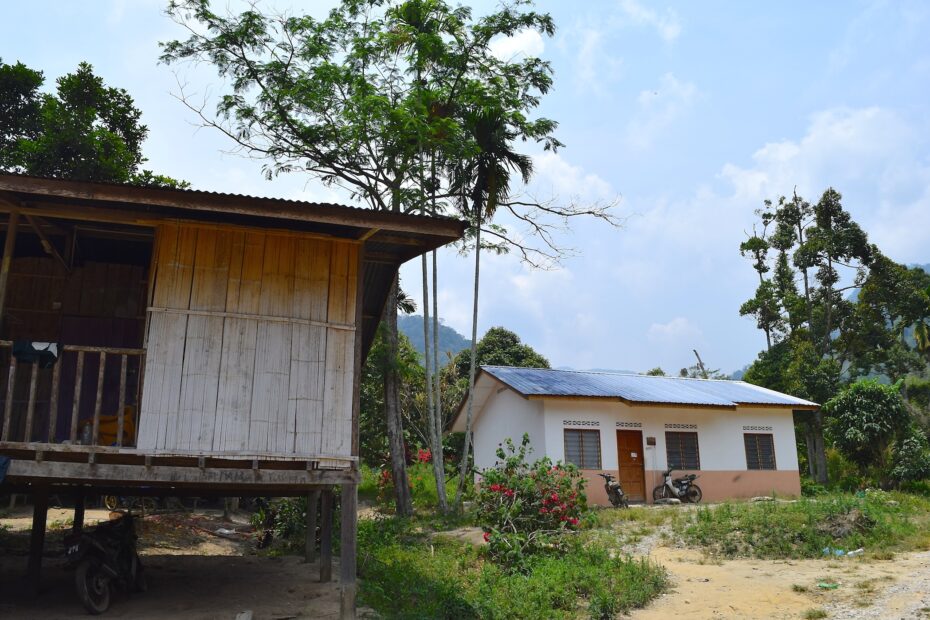
The orang asli prefer to live in their own homes (left) despite government’s efforts of building brick houses for them.
Those who have handphones prefer regular ones with simpler functions. They are not into technology and feel it is of little importance to them.
The orang asli villagers have installed pipes that run from the mountains and rely on gravity to transport water. In the neighbouring village, the villagers heavily depend on the river as it is a vital source of food, water and means to carry out daily activities.
“They are content with the little they have; their culture is already ingrained in them, and they have no intention of abandoning it. I think they are happy people,” said Tee. “Only city people are unhappy.”

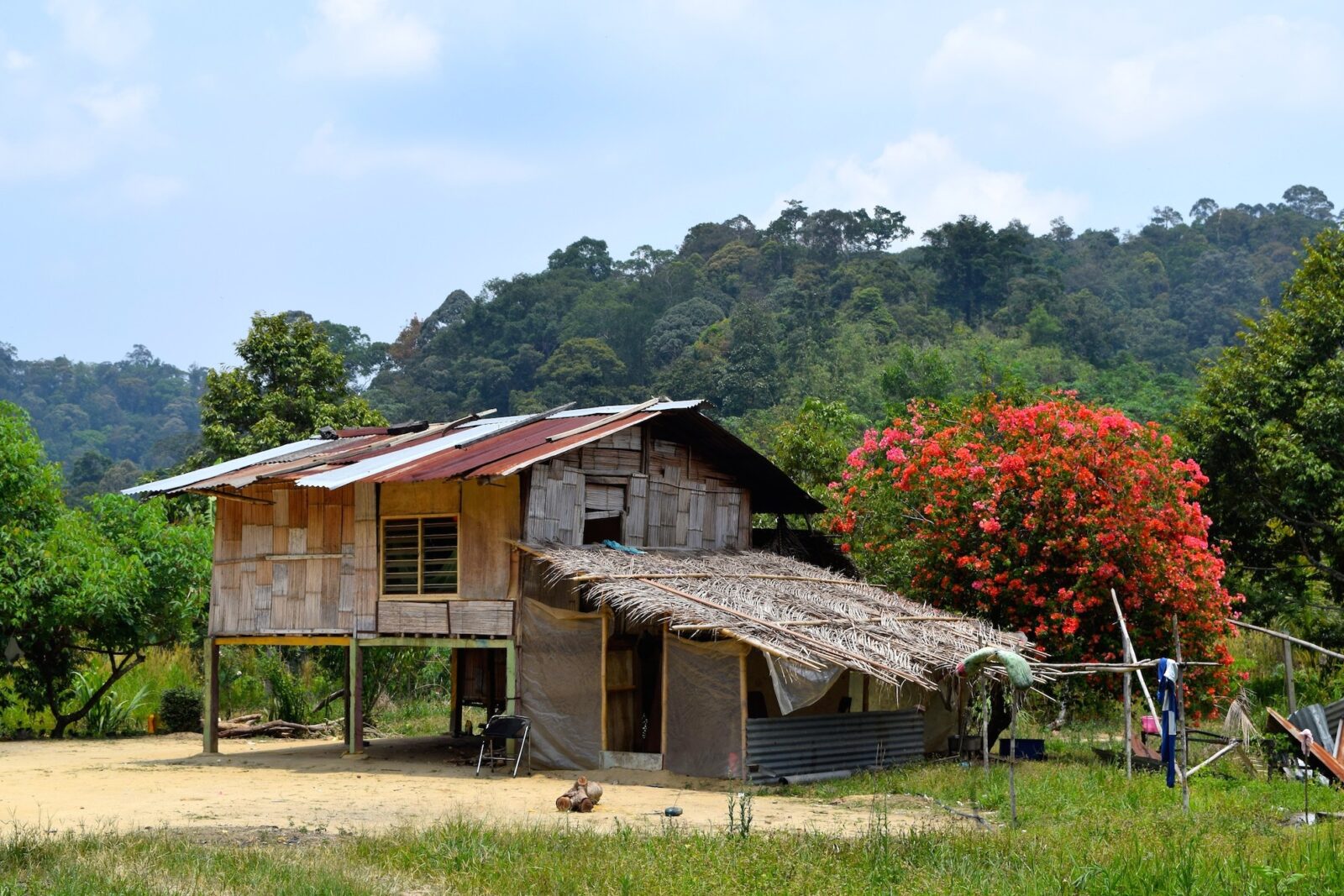
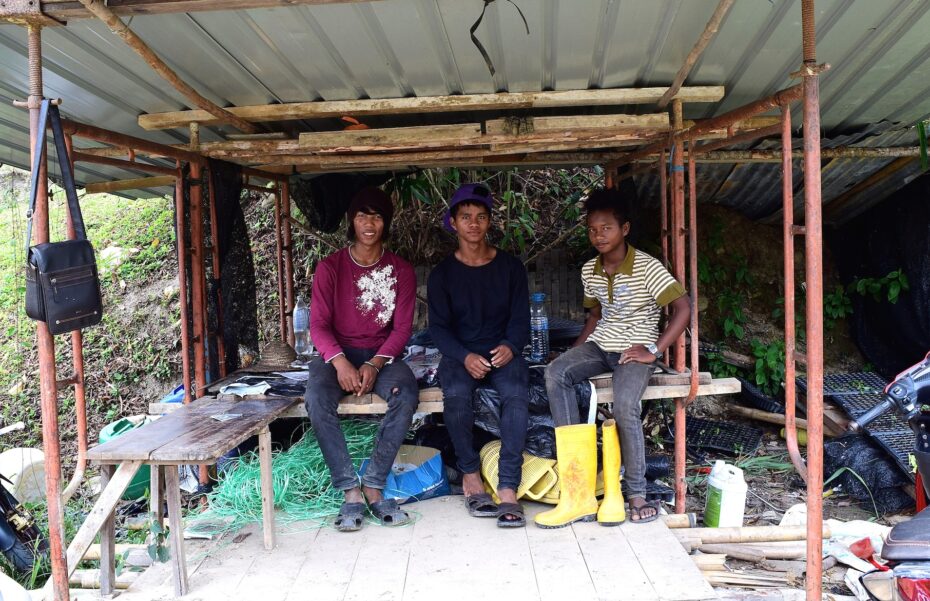
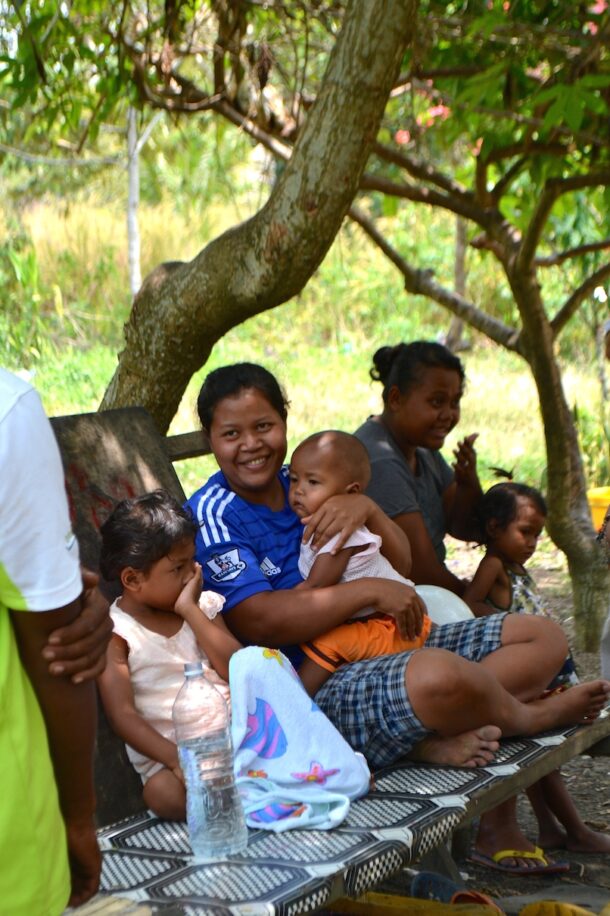
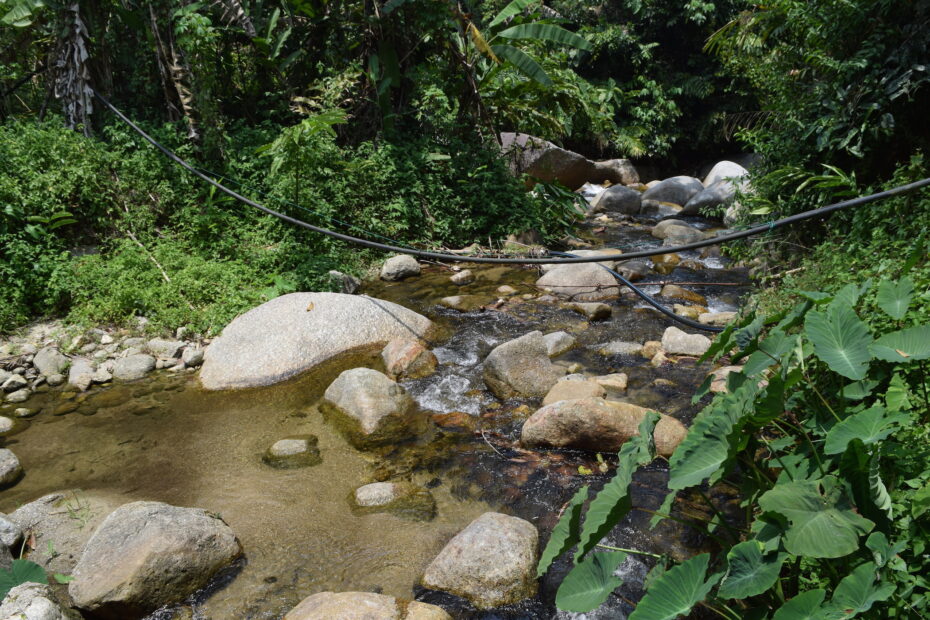












Leave a reply